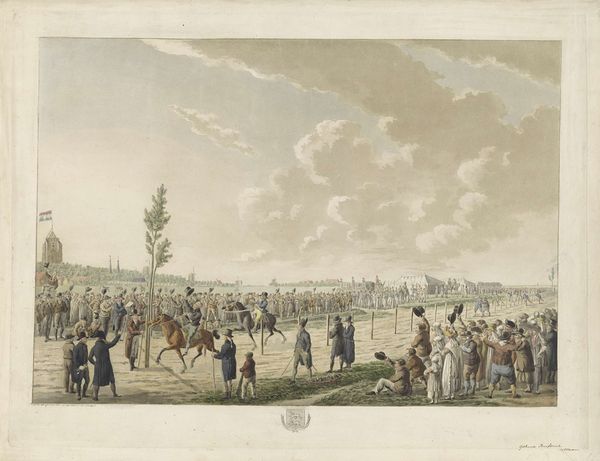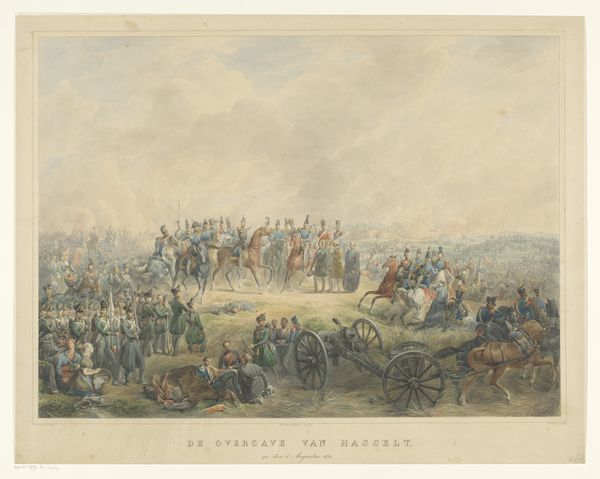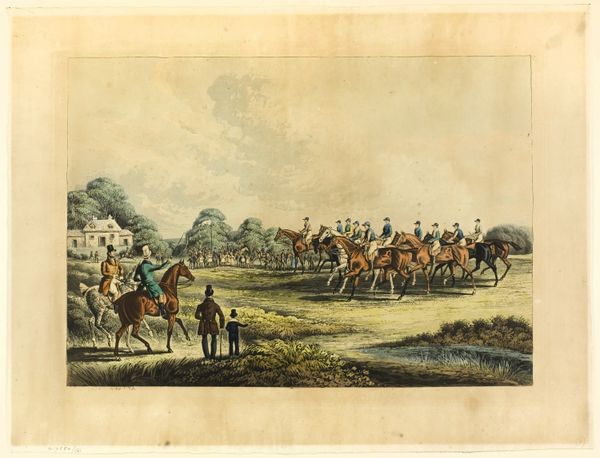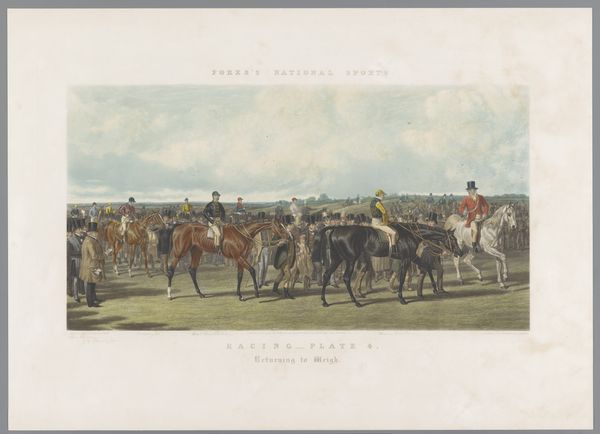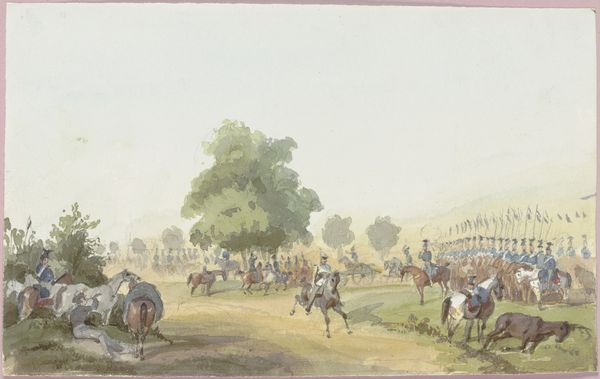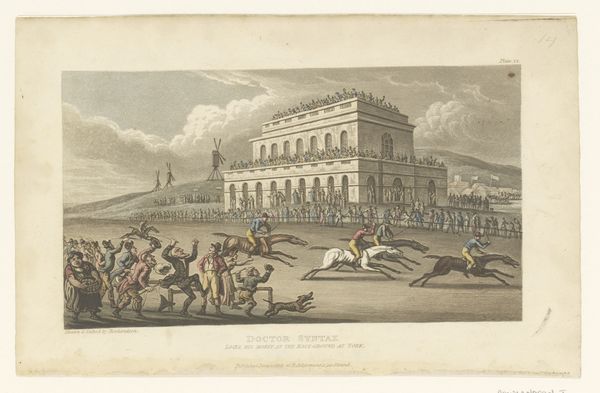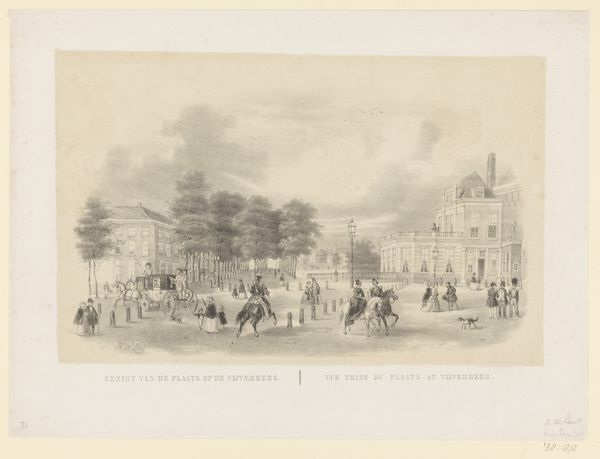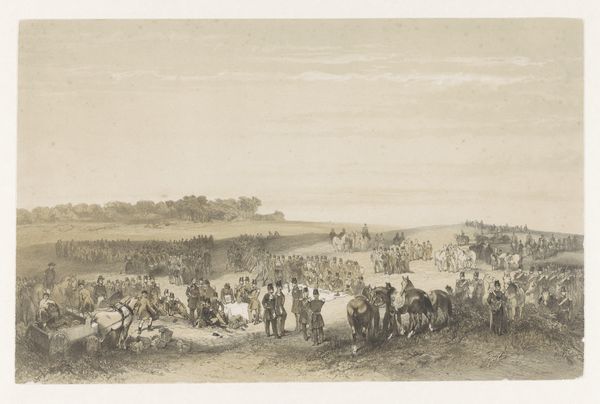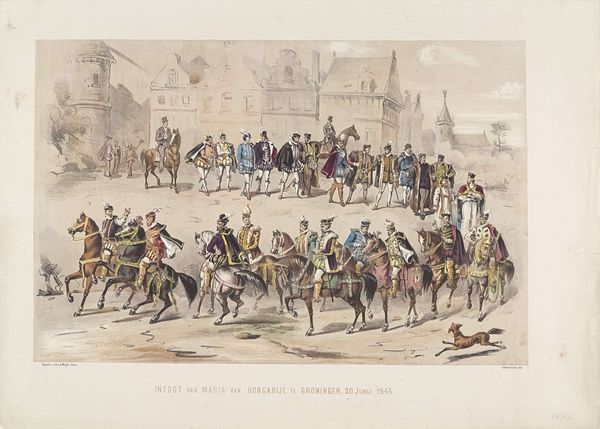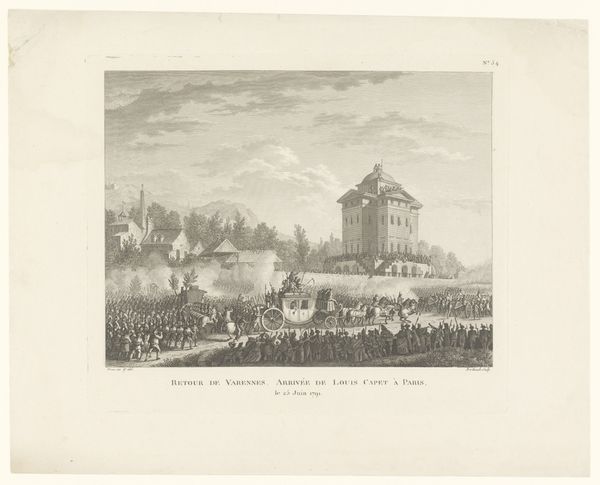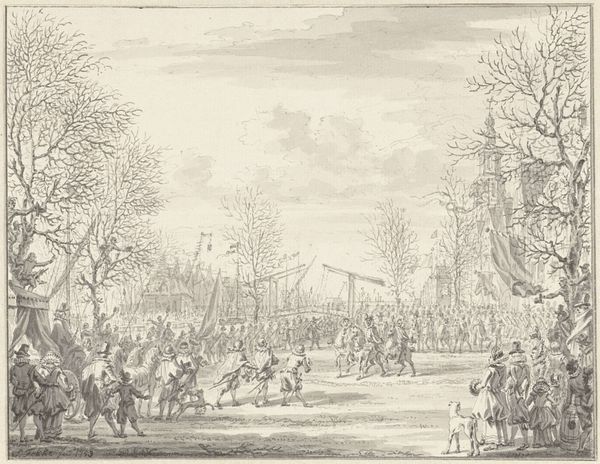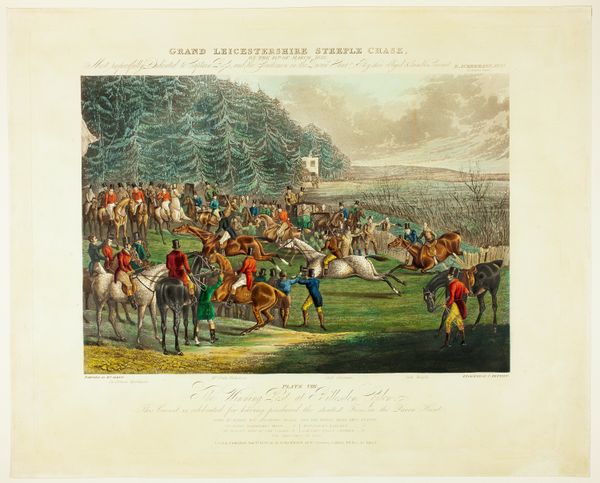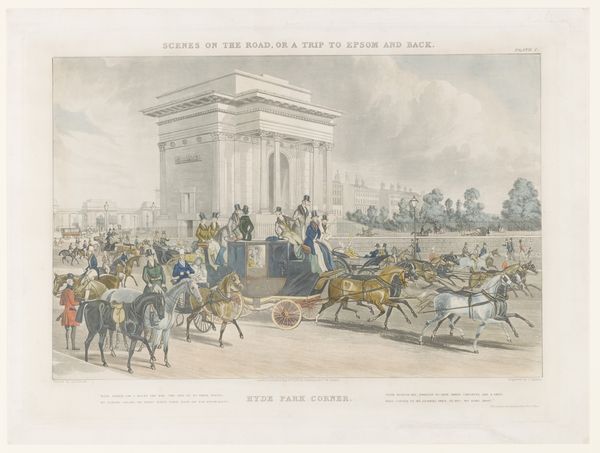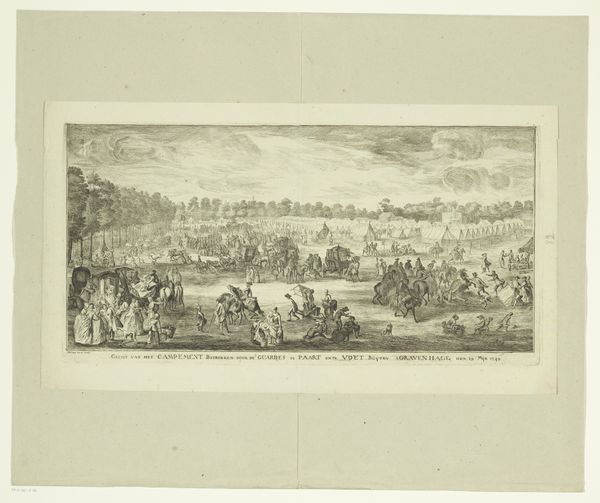
Doncaster Races: The Horses Starting for the Great St. Ledger Stakes Possibly 1832
0:00
0:00
coloured-pencil, print, watercolor
#
coloured-pencil
#
water colours
# print
#
landscape
#
watercolor
#
coloured pencil
#
romanticism
#
cityscape
#
genre-painting
Copyright: National Gallery of Art: CC0 1.0
Editor: This print, "Doncaster Races: The Horses Starting for the Great St. Ledger Stakes" by James Pollard, possibly from 1832, it's got this remarkable bustling energy, despite the muted color palette. What stands out to you in this piece? Curator: What immediately grabs me is the romanticized depiction of elite leisure set against the backdrop of societal stratification. Notice the sharp contrast between the spectacle of the race – the wealth and privilege on full display – and the socio-economic realities of 1830s England. Does the artist offer any critique of this societal imbalance? Editor: Hmm, it's easy to get lost in the pretty horses, but I see what you mean. There’s a whole social structure just in where people are placed – who's in the carriages, who's on the track, and who's just watching from afar. So the composition itself speaks volumes about power. Curator: Exactly! And consider the narrative this scene constructs. The artist subtly exposes the era's obsession with status and competition, not only in the race itself but within the viewing crowds. How might contemporary viewers interpret this emphasis on hierarchical social structures? Editor: Maybe the print served to legitimize those structures, showing everyone in their "proper" place. Or perhaps it offered a glimpse into a world that was out of reach for many. It’s both celebratory and, in a way, alienating. Curator: Precisely. These depictions offer rich territory to analyze class, gender and the politics of representation in art. Recognizing these historical dynamics fosters more nuanced readings of visual culture. Editor: This really opens my eyes to looking beyond just the surface of the image, and considering its historical impact! Curator: Agreed. Context is everything. Understanding that helps unlock new dialogues.
Comments
No comments
Be the first to comment and join the conversation on the ultimate creative platform.
